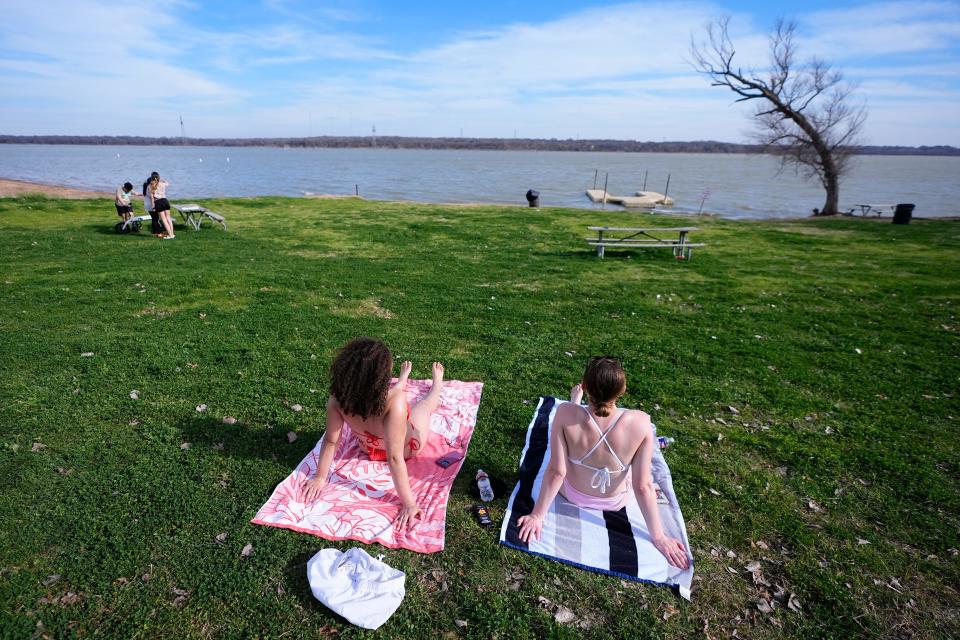Warmest winter on record? Winter weather never really arrived in parts of the USA.
Folks digging out from feet of snow in the West this weekend may not believe it, but Thursday was the last day of winter, at least according to meteorologists' record books.
And what a winter is was (or wasn't ...): According to preliminary data collected by AccuWeather, it was the warmest winter on record in the U.S., when temperatures are averaged out across the entire nation.
(For statistical purposes, climatologists and meteorologists define winter as the coldest three months of the year, thus winter ended Feb. 29. Astronomical winter still has a couple of weeks to go, as the spring equinox isn't until March 19.)
Indeed, for millions of folks in the north-central and northeastern U.S., it was the warmest winter season of their lives, upending traditions from sled dog races to ice festivals and spurring on golf matches in Wisconsin and packed playgrounds in Minnesota.
“It’s the year without a winter in the upper Midwest,” declared AccuWeather chief broadcast meteorologist Bernie Rayno.

Record-shattering warmth
Just earlier this week, temperatures in the central U.S. soared into the balmy 70s and 80s, shattering records that had stood for a century or more. Many locations broke temperature records for the month of February.
For the winter as a whole, in addition to cities like Minneapolis-St. Paul, Milwaukee, Des Moines and Albany, dozens of other locations were also in line to set all-time record warm winters, as final data was still being tabulated Friday.
The data is based on the average national temperature ranking for Dec. 1, 2023, through Feb. 29, 2024, compared with all winters since 1893.
Low snow this winter too
Cities in the Northeast also endured a lack of snow because of the warmth. Storms that would usually dump snow brought rain instead, said AccuWeather meteorologist Paul Pasternak.
Syracuse, New York, recorded a nearly 5-foot snow deficit, the National Weather Service said.
Meanwhile, snow did fall in the West − just not as much as hoped.
The vital Sierra Nevada snowpack, which normally supplies about a third of California’s water when it melts, had a slow start but has gotten a bit better.
The snowpack’s water content Thursday was 80% of normal amounts to date, according to the state Department of Water Resources.
What caused the warmth?
Meteorologists say that El Nino, as predicted last fall, was the primary driver for the warm weather pattern that persisted throughout the winter. El Nino typically produces unusually warm winters across the northern tier of the nation.
AccuWeather chief meteorologist Jon Porter also said that our warming climate also contributed to the unusually mild conditions for much of the country this winter.
What's the forecast for March?
In a forecast released this week, forecasters at the Climate Prediction Center said the mild trend in the eastern U.S. is expected to continue throughout March, especially in the Great Lakes, Ohio Valley, mid-Atlantic and Northeast.
The West, however, is predicted to see a cool, soggy March, the center said.
This article originally appeared on USA TODAY: Warmest winter on record? Early data says it could be as spring begins


